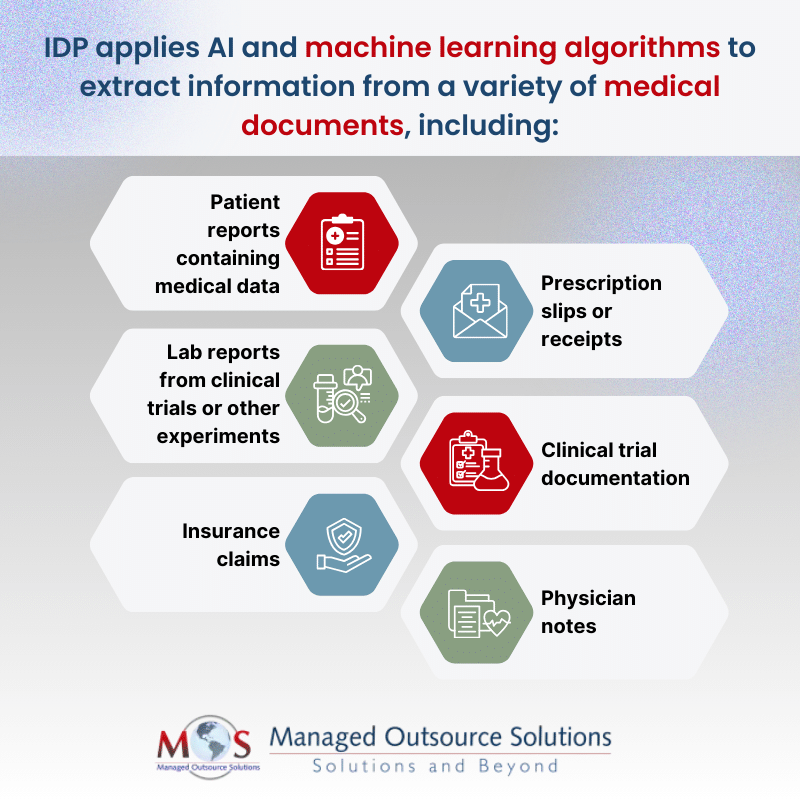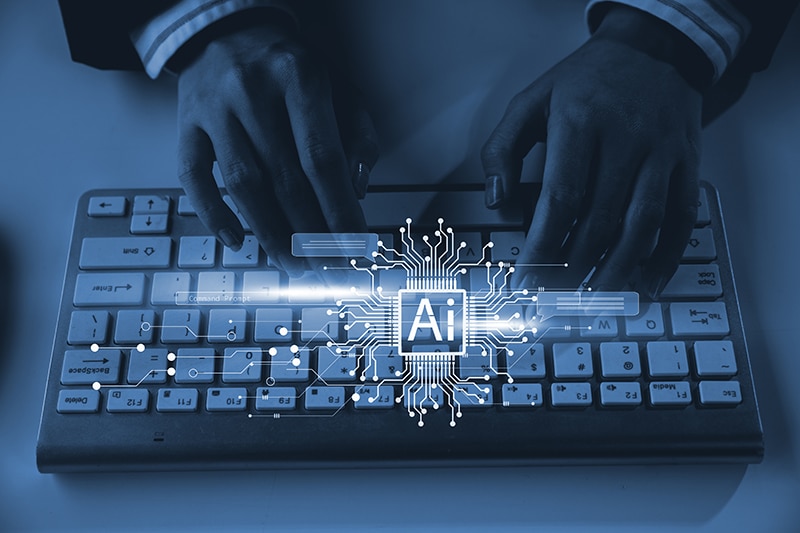Artificial intelligence (AI) continues to revolutionize many industries. AI’s potential in healthcare is on the rise, given its ability to provide insights from massive data sets swiftly and accurately. Precise healthcare data has a wide array of potential applications that cover everything from diagnostics to medical record review and clinical trials. The first step in this transformative journey is document digitization. Moving from paper records and manual workflows to digital workflows is necessary to harness the potential of AI in healthcare. In fact, an increasing number of healthcare businesses are relying on document digitization services to embrace expertise and transform data management.
AI-Powered Healthcare Document Digitization
In healthcare, managing patient information efficiently is crucial. Clinicians need quick access to up-to-date medical information at the right time to provide care. By efficiently extract data from medical records, prescriptions, and lab reports, AI-powered solutions can deliver this information quickly.
AI-powered document digitization in healthcare is continuously evolving. It applies AI and machine learning algorithms to digitize physical documents and store them in digital storage systems such as Electronic Health Records (EHRs). Optical character recognition (OCR) software extracts and repurposes data from scanned documents. It locates and recognizes characters, such as letters, numbers, and symbols, puts them into words and sentences, and enables access to and editing of the original content.
However, medical data is complex and simply converting scanned images into editable text may not be enough. AI-powered healthcare document digitization offers the solution. It utilizes intelligent document processing (IDP) to automatically convert physical or scanned healthcare documents into structured, searchable, and actionable digital data.

AI-powered solutions can also classify and organize healthcare documents to align with electronic medical records (EMRs) and other healthcare systems. This allows for the automation of various processes, like claims processing and patient onboarding. They can also ensure the security and privacy of sensitive patient information in accordance with HIPAA.
Automating Medical Record Review with AI
Evaluating complex medical records manually is a difficult and error-prone task. Key challenges when dealing with medical file reviews include:
- presence of data duplicates due to manual data entry or data stored in various locations
- difficulty obtaining relevant information from unstructured, unorganized files
- OCR cannot read hand-written text in healthcare documents
- omitting relevant facts can affect decision making
Today, AI-powered document processing is proving a game-changer, allowing lawyers, medical evaluation firms, and insurance to precisely extract key information they need from medical files. These advanced tools process medical records in 50% half the time needed by manual methods. Their capabilities include:
- Automates organization of medical records by date, service provider, title, and category
- Identifies and consolidates duplicates
- Provides fully searchable medical records
- Extracts hand-written text accurately
- Securely handles sensitive data
- Stores and organizes the extracted information
- Analyzes digital medical data, providing valuable insights for better informed decision making
By adopting AI-assisted solutions for medical record review, users can enhance the process, ensure efficient data extraction, and reduce backlogs.
Automating IDP for Clinical Trials
Data processing is an essential element of clinical trials. According to a HIT Consultant article, a typical clinical trial generates over 13,000 documents in various formats, including text, audio, video and images, making it difficult to collect, organize and analyze the data. By automating these clinical trial tasks, IDP can improve accuracy, speed up processes, and increase productivity, making them an ideal tool for pharmaceutical companies.
Using AI/ML, natural language processing (NLP), and generative AI agents, IDP quickly transforms thousands of documents into valuable research insights. This enables researchers to identify hidden patterns and trends that could lead to path-breaking medical discoveries. Generative AI can also quickly recognize potential trial participants from medical records and track patients by analyzing medical data promptly and detecting safety issues.
AI-Powered Digitization – Document Conversion is Foundational
By eliminating manual data entry and reducing errors, AI-powered digitization significantly enhances the accuracy and consistency of healthcare data. This is crucial for effective decision-making and patient care. These solutions can efficiently handle large volumes of healthcare files quickly.
Accurately converting physical documents, forms, and records into digital formats is essential to implement AI-powered document processing. Digitizing paper files is the first step for integrating documents into EMRs, automating medical record reviews, and processing data for clinical trials. Working with a document conversion company is the ideal way to achieve this critical transition to electronic files.
Improve operational efficiency with our document conversion solutions!




